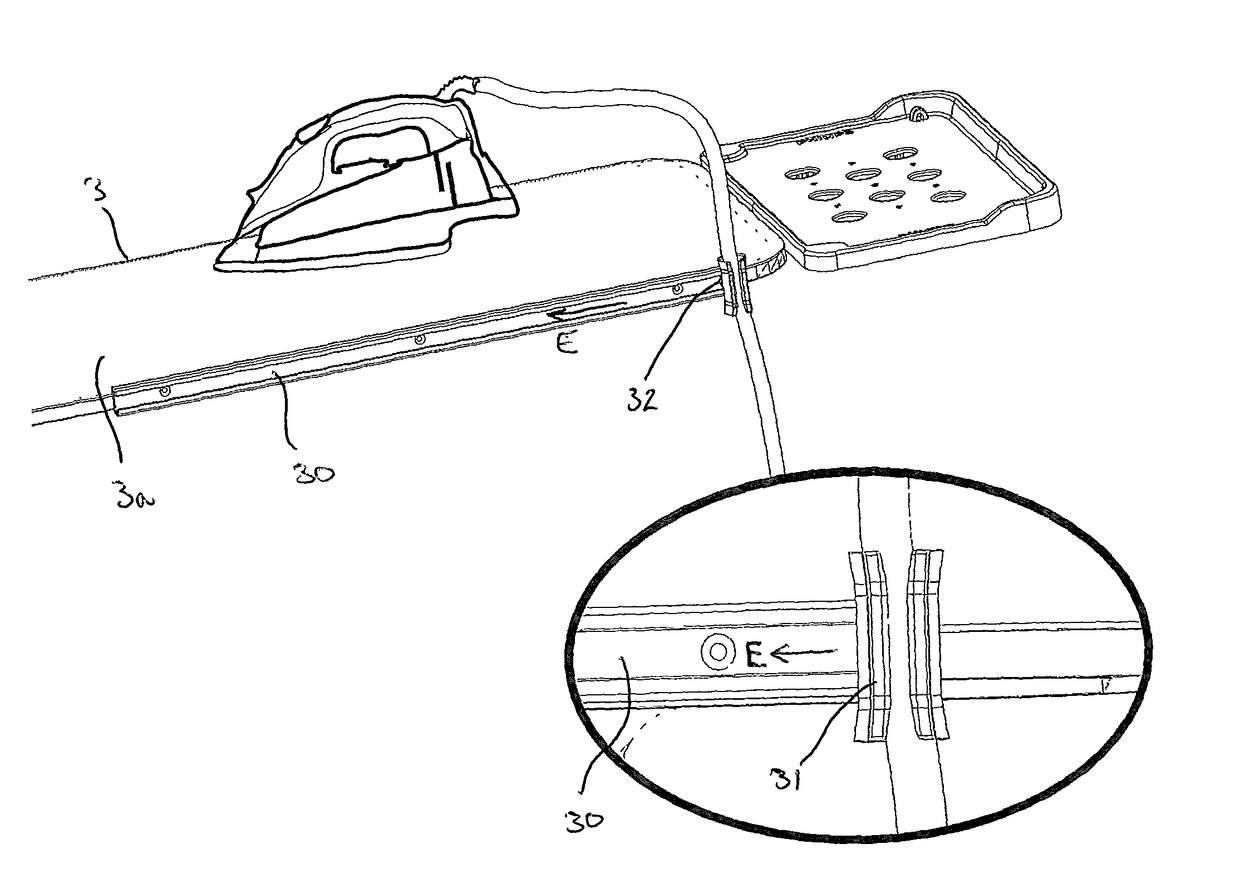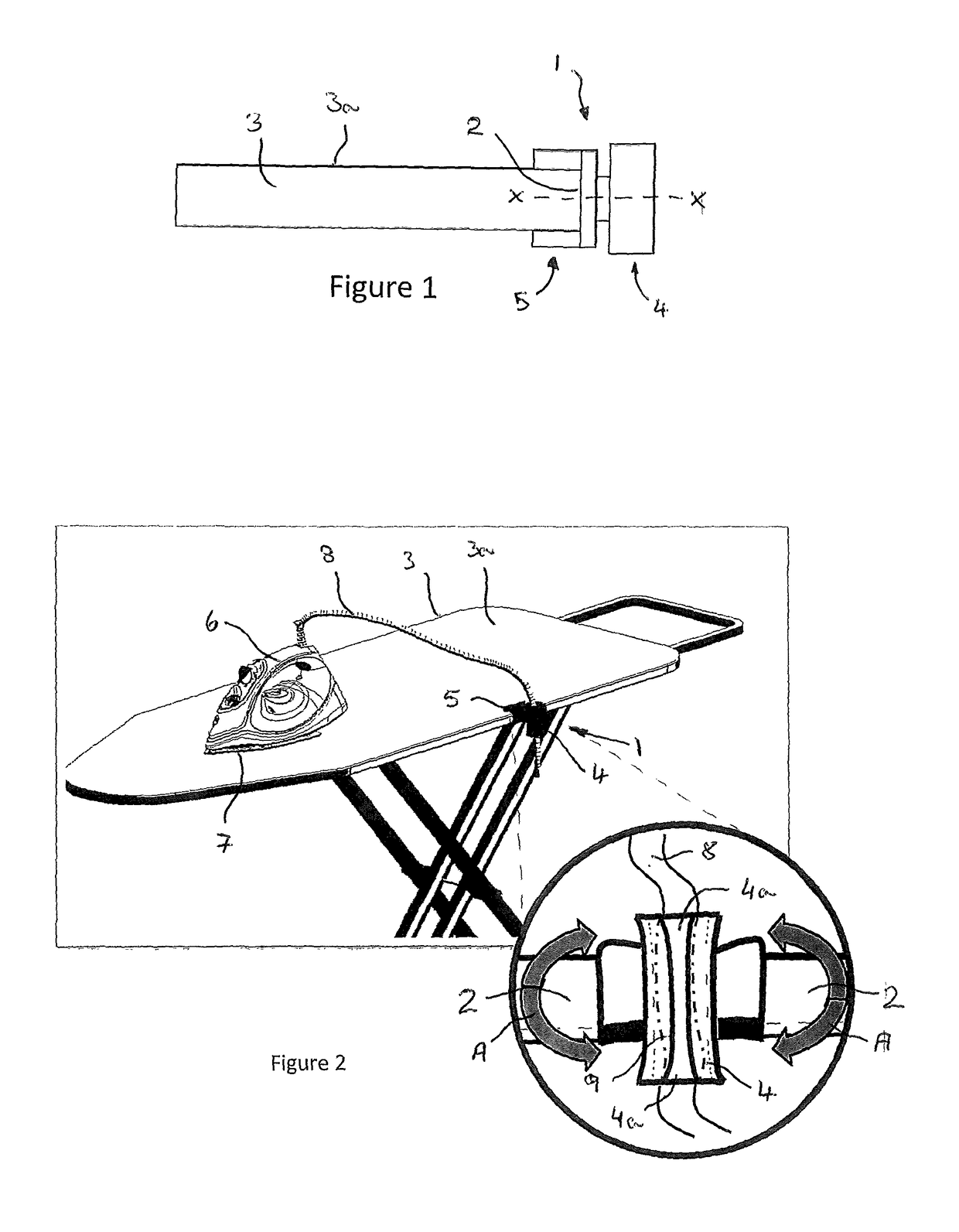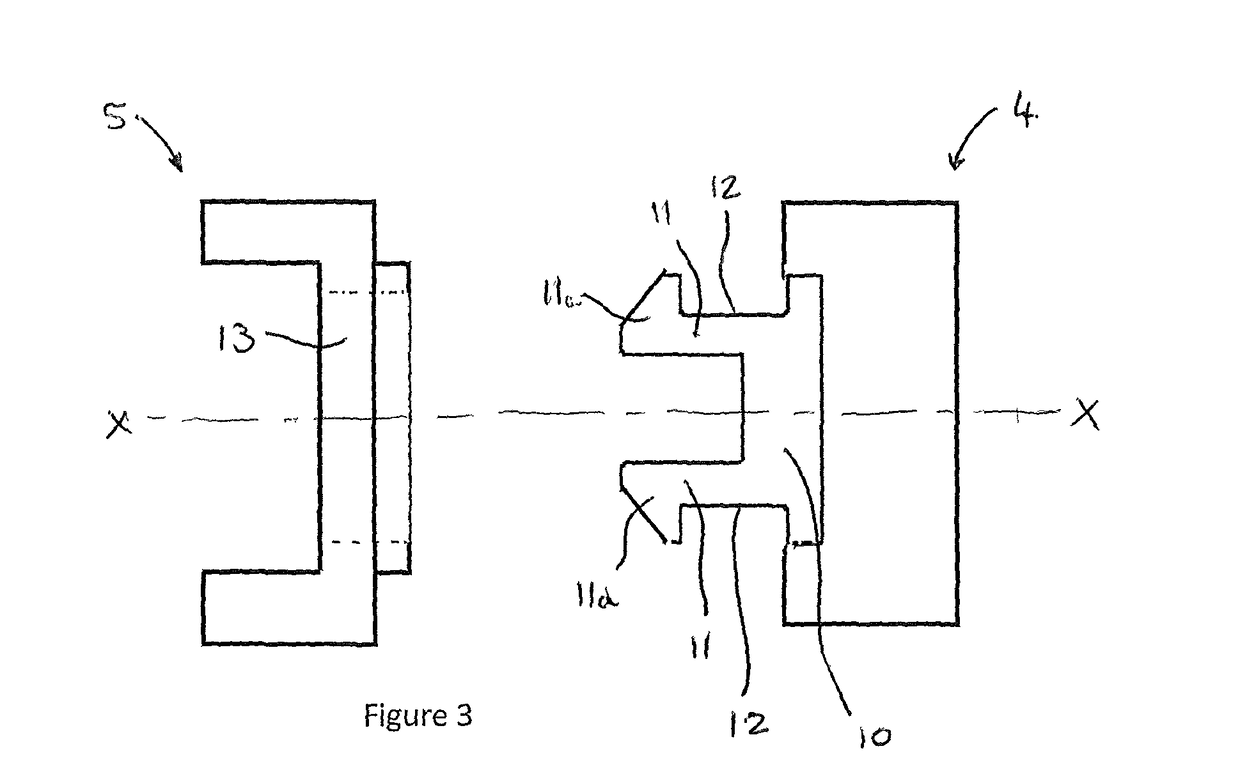Device for guiding a flex extending from an appliance
a technology for guiding devices and flex cords, which is applied in the direction of cable arrangements between relatively moving parts, arrangements using gravity-loaded loops, etc., can solve the problems of wear to both fabrics and cords, cords may not always drop back, and the ironing process is more difficult and time-consuming, so as to control the movement of flex cords and manage the effect of flex
- Summary
- Abstract
- Description
- Claims
- Application Information
AI Technical Summary
Benefits of technology
Problems solved by technology
Method used
Image
Examples
Embodiment Construction
[0036]Some embodiments of the invention provide a device that prevents the electrical cord of an iron from contacting the edge of an ironing board. Some embodiments also prevent the cord from moving laterally along the edge of an ironing board during ironing, but otherwise allow the cord to move freely so that as the iron is moved away from the device across a garment being ironed, the proportion of the length of the cord which is above the edge of the ironing board passes through the device and increases. Similarly, when the iron is moved in the opposite direction, towards the device, the cord slides back through it so that the proportion of the cord that is below the edge of the ironing board increases. As the cord is prevented from contacting the edge of the board, it does not rub against any garments hanging over the edge. Furthermore, as the device projects above the ironing board surface to only a very limited extent, the cord is guided downwardly from the iron into and throug...
PUM
 Login to View More
Login to View More Abstract
Description
Claims
Application Information
 Login to View More
Login to View More - R&D
- Intellectual Property
- Life Sciences
- Materials
- Tech Scout
- Unparalleled Data Quality
- Higher Quality Content
- 60% Fewer Hallucinations
Browse by: Latest US Patents, China's latest patents, Technical Efficacy Thesaurus, Application Domain, Technology Topic, Popular Technical Reports.
© 2025 PatSnap. All rights reserved.Legal|Privacy policy|Modern Slavery Act Transparency Statement|Sitemap|About US| Contact US: help@patsnap.com



